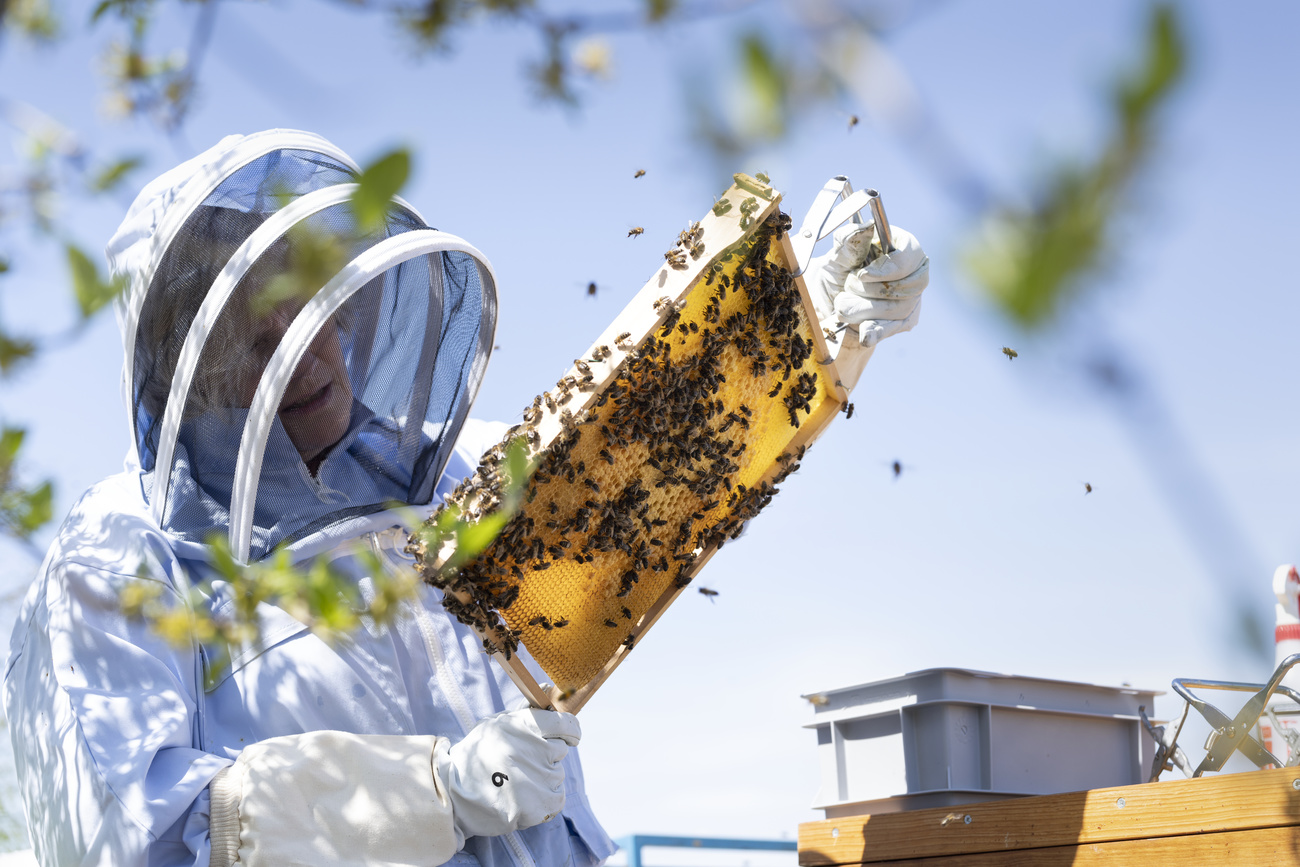
All bee colonies in Switzerland are sick, warns specialist

All honeybee colonies in Switzerland are suffering from chronic diseases. "If beekeepers don't do something about it, all the colonies will be dead in one or two years,” warns bee specialist Peter Neumann.
Swiss bees are infected by the varroa mite, Neumann explained in an interview published on Friday by the CH Media group of newspapers. “There are other viruses that have nothing to do directly with the mite. On the whole, colonies are so weakened that even viruses that would not normally be harmful become a threat”.

More
Invasive Asian hornet rapidly spreading in Switzerland
According to the expert, three measures should be put in place to improve the situation: better information for beekeepers and the general public, the development of protection measures for all bees and honeybees, and finally extensive research into a sustainable strategy against varroa mites. Moreover, the mite must be fought sustainably, Neumann adds. “It’s crazy that we’ve been at the same point for 30 years.”
Insecticides and pesticides
Neumann also calls for a ban on the use of insecticides and pesticides. “There are frightening data on this subject. It almost took my breath away recently […] I’m surprised we still have insects”.

More
Honey production collapses in Switzerland
The specialist refutes the idea that there are too many honeybees in cities. “That’s a bit like saying that there are too many cows in Switzerland because they eat the grass of deer and rabbits. The density of honeybees in Switzerland is still lower than in Africa, where bees occur naturally in the wild,” he says.
First and foremost, bees need to become healthier again, he points out. “This will also reduce the likelihood of infection by other viruses.
This news story has been written and carefully fact-checked by an external editorial team. At SWI swissinfo.ch we select the most relevant news for an international audience and use automatic translation tools such as DeepL to translate it into English. Providing you with automatically translated news gives us the time to write more in-depth articles. You can find them here.
If you want to know more about how we work, have a look here, and if you have feedback on this news story please write to english@swissinfo.ch.

In compliance with the JTI standards
More: SWI swissinfo.ch certified by the Journalism Trust Initiative






























You can find an overview of ongoing debates with our journalists here . Please join us!
If you want to start a conversation about a topic raised in this article or want to report factual errors, email us at english@swissinfo.ch.